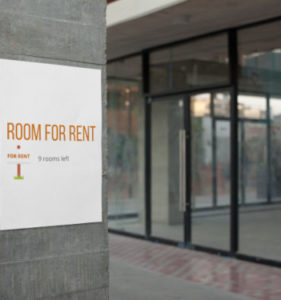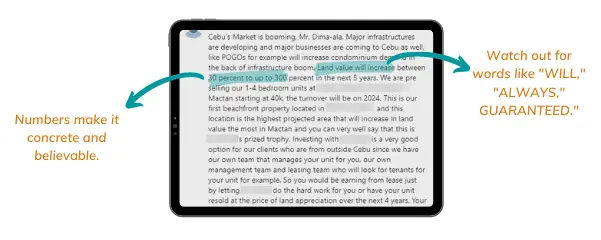One bad tenant is all it takes. We go into the apartment business looking for a route to financial freedom. But unpleasant tenant experiences can be so traumatic, around 50% of landlords own only 1 property. Here are 13 practical ways to avoid bad tenants in your apartment business.
(Note: Some items here show tenant red flags, but not necessarily deal-breakers. Always assess individual circumstances. This also isn’t legal advice.)
Page Contents
- 1. Keep your property in good condition
- 2. Ads: Specify your strict policies
- 3. Ads: Don’t specify your vacancies
- 4. Ads: Be professional
- 5. Charge the right rent
- 6. Require at least 1-month advance and 1-month deposit
- 7. Avoid negotiating tenants
- 8. Beware of cash-only tenants
- 9. Screening Phase: Look for nonverbal cues
- 10. Screening Phase: Contact their previous landlord
- 11. Screening Phase: Ask for employment details
- 12. Beware of urgent move-ins
- 13. Be firm with delayed payments
1. Keep your property in good condition
Bad properties attract bad tenants. Good properties attract good tenants.
A poorly-maintained property is bound to bring in desperate tenants. The neglected property is a signal that they, too, don’t have to care for the apartment.
By not spending on maintenance expenses to cut on costs, you’re actually hurting your apartment business in the long run. Good tenants with good credit are turned off, while bad tenants see the shabby apartment fitting their needs.

2. Ads: Specify your strict policies
Specify in your ad some of your policies such as your no smoking policy, the requirement to list tenant names, strict implementation of penalty fees, and contract signings.
Your first interaction with a prospect is either at the property (for walk-ins) or in an ad. Being transparent with your policies is a sign of strict implementation, which is probably not what most tenants are used to.
3. Ads: Don’t specify your vacancies
Conversely, don’t be too transparent, particularly with your high vacancies.
I’m not suggesting we lie about our vacancies. But saying you have 9 vacant rooms out of 10 doesn’t help your apartment business.
Showing your high vacancy rate gives tenants negotiating power. (See number 7). They see you as a desperate landlord willing to accept anyone.
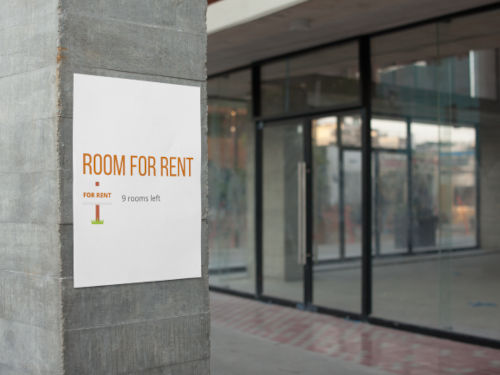
On the contrary, maybe willingly show your low vacancy rate as it can sometimes be used as a marketing tactic. But that’s an aside.
4. Ads: Be professional
The landlord-tenant relationship is a business relationship. Show them professionalism.
Being too familiar with tenants can lead to all sorts of problems. Get off on the right foot by showing them this is a business that requires professionalism. We can do this by showing up on time, by dressing appropriately, or by the language we use in our ads.
This is not saying we need to be unfriendly to tenants. In fact, being friendly has advantages. But it is about showing respect so they respect you back.
5. Charge the right rent
The rent you charge should be close to what similar properties in similar areas charge.
The 3 basic valuation methods post gives an overview of how properties are valued. It also indirectly shows why similar properties charge similar rates.
Charging a higher-than-market rent has obvious disadvantages. You end up with a high vacancy rate because no one wants to overpay for an apartment. Or you end up with very demanding tenants that know they paid a premium.
But charging lower-than-market rent has disadvantages beyond vacancy rates, and with arguably worse impacts. Low-quality tenants have high turnover (i.e., you change tenants monthly, with corresponding transaction costs), refuse to leave, will damage your property, will argue with you on everything, and so on.
Don’t be afraid to turn down offers but also make sure what you’re charging is fair.

6. Require at least 1-month advance and 1-month deposit
Different countries and states allow different caps on advance payments and deposits. A good rule of thumb is to require at least a 1-month advance and a 1-month deposit.
You may also request more if the law permits and if it is at par with your location’s benchmarks. But in general, a higher requirement protects you at the cost of potentially higher vacancies.
Requiring at least a month paid in advance and deposit not only covers your bases but is also a deterrent. Bad tenants are typically unable or unwilling to pay a deposit because they know they’ll never get it back — consciously or subconsciously.
7. Avoid negotiating tenants
Speaking of advance payments and deposits, some tenants try to negotiate lower terms. Do not give in.
There are a couple of reasons — willingness and capacity.
Agreeing to negotiate gives a signal that everything is negotiable. More often than not, tenants who get away with negotiated terms try to negotiate other policies as well, such as payment deadlines, curfews, bringing of pets, and the like.
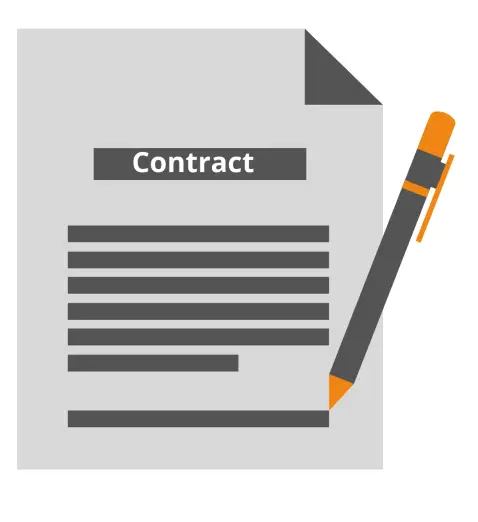
Another is that it’s a poor sign of a tenant’s credit. Assuming your terms are reasonable (see number 6), then the total upfront payment of 1-month advance and 1-month deposit is likely around 2 to 3 times the income of a decent tenant. A tenant that finds this difficult is likely to be a difficult tenant, too.
8. Beware of cash-only tenants
Surprisingly, a tenant who insists on paying in cash is a red flag. But it depends.
Typically, tenants who have large cash balances but inadequate bank reserves are involved in illegal activities. Banks have strict policies and controls against money-laundering and corrupt tenants avoid these controls as much as they can.
But this tip is highly subjective. If your property is a low-cost apartment in a rural area, then a majority of people in the area do not own bank accounts — let alone checking accounts. This is the reality that’s seldom discussed in developed markets. The fact is, for apartment owners in developing areas, almost all tenants pay in cash.
Assuming you serve a developed area where most people have bank accounts, then it’s reasonable to be extra careful of cash-only tenants.
9. Screening Phase: Look for nonverbal cues
Nonverbal cues say a lot. Negative telltale signs include being late for the meeting, having lots of extra requests, and a somewhat superiority complex from their profession, for instance.
Being late for the meeting is an issue that ties straight into late payments. While demanding tenants will take a lot of your time with maintenance issues such as changing light bulbs or even wet-from-rain welcome mats. (I kid you not!)

Again, these are red flags rather than deal-breakers. A lot of these are highly subjective and it is up to the landlord to determine which is which. This is a skill that gets better with practice. However, as a quick rule of thumb, don’t get into the contract signing if something’s off. Trust your gut, but always reassess after.
10. Screening Phase: Contact their previous landlord
Getting hold of their previous landlord is a gold mine. Questions to ask include reasons for leaving, payment history, and status of the vacated unit.
The benefits here are clear. A previous landlord usually doesn’t have an incentive to lie about a previous tenant’s history — but not always, so take the information cautiously.
Although a lot of tenants omit this information, not having previous landlords is a red flag in itself.
11. Screening Phase: Ask for employment details
All things the same, a tenant with a larger income is likely to be less of a headache.
That said, there are other factors in play, and the tenant’s disposable income (not the gross income) should be the measure of choice. Gross income though is an acceptable proxy. A reasonable standard would be to require a gross income that’s 2 or 3 times more than the rent.
Getting employment information also provides an additional background check to supplement calling their previous landlord. Again, take the information cautiously because employers and managers may give prejudiced feedback.

12. Beware of urgent move-ins
Urgent move-ins are indicative of potential problems, including evictions or evasions.
Like number 8, this is another one of those deceptive points that at first glance looks good. One reason why tenants may want to move-in quickly is that they’ve been evicted by their landlords for one reason or another. Whether that’s from non-payment of rent or for violating rules and regulations, or something else.
Another reason is they may be hiding from authorities or from problematic incidents. Regardless, it’s best not to get involved.
13. Be firm with delayed payments
Although this one applies to current tenants, being flexible with delayed payments spreads fast and breeds bad tenants. Before you know it, several delays pile up.
Tenants talk to each other and it’s not surprising how they copy each other. When a delayed payment is free from penalty fees, it becomes a precedent for future delays.
No matter what the reason, never allow payment delays. As selfish as this may sound, the reasons for delayed payment should never matter. Hearing these excuses out not only gives unnecessary hope but also encourages them to lie about it. Remember you’re in a business relationship.
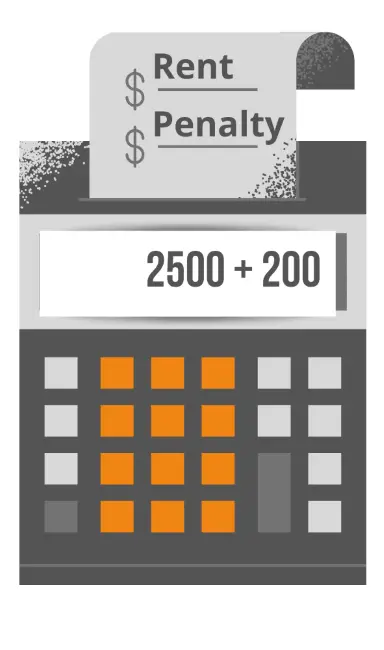
How did you find the tips in this post? What are some other ways you avoid bad tenants? Help the community by sharing your strategies in the comments section below.
Read more, select a topic:


